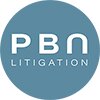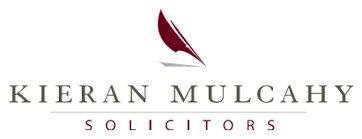Best Reinsurance Lawyers in Ireland
Share your needs with us, get contacted by law firms.
Free. Takes 2 min.
Or refine your search by selecting a city:
List of the best lawyers in Ireland
About Reinsurance Law in Ireland
Reinsurance in Ireland is a specialized area of insurance law dealing with agreements through which an insurer passes on risk to another party, known as the reinsurer, in exchange for a premium. It plays a crucial role in the insurance market by allowing insurers to manage risk exposure, access financial stability, and increase underwriting capacity. Ireland, as a global hub for insurance and reinsurance businesses, adheres to both national laws and European Union regulations. The Central Bank of Ireland oversees regulation and compliance, making the country an attractive location for reinsurance companies operating within a robust regulatory framework.
Why You May Need a Lawyer
Individuals or businesses might require legal advice in reinsurance for various reasons. Common situations include negotiating or drafting reinsurance contracts, resolving disputes between insurers and reinsurers, ensuring compliance with regulatory requirements, and addressing claims handling intricacies. Legal representation can also be crucial in arbitration or litigation related to reinsurance agreements. Given the complexity and dynamic nature of reinsurance law, engaging a lawyer with specialized knowledge can help protect your interests and minimize potential liabilities.
Local Laws Overview
Reinsurance operations in Ireland are governed by both domestic and EU laws, which outline specific regulations for financial solvency, operational conduct, and capital requirements. Key pieces of legislation include the Insurance Act 1989 and the Solvency II Directive, which set solvency standards for insurance and reinsurance companies. The Central Bank of Ireland acts as the regulatory authority, ensuring that reinsurance firms comply with the set regulations and maintain adequate financial resources. Understanding these laws is crucial for anyone involved in the reinsurance industry as they influence daily operations and long-term strategic decisions.
Frequently Asked Questions
What is the main purpose of reinsurance?
Reinsurance allows insurance companies to manage risk by spreading it among multiple parties, reducing the overall risk exposure of any single insurer.
Who regulates reinsurance companies in Ireland?
The Central Bank of Ireland is the primary regulatory body overseeing the compliance and conduct of reinsurance companies in Ireland.
What are common types of reinsurance contracts?
Common types include treaty reinsurance, where a reinsurer covers a set of policies, and facultative reinsurance, which involves individual policy coverage.
What is Solvency II, and how does it affect reinsurance?
Solvency II is an EU Directive that harmonizes insurance regulation across member states, focusing on solvency, risk assessment, and reporting requirements impacting reinsurance companies.
How are reinsurance disputes typically resolved?
Reinsurance disputes often involve arbitration or litigation, requiring specialized legal expertise due to the complex and cross-jurisdictional nature of such agreements.
Can Irish reinsurance companies pursue international business?
Yes, due to Ireland's EU membership, reinsurance companies can operate freely across other member states and leverage Ireland's favorable business environment.
What role does the Central Bank of Ireland play in reinsurance?
The Central Bank oversees regulatory compliance, ensuring that reinsurance entities adhere to financial and operational standards, thereby maintaining market stability.
What are the implications of non-compliance with reinsurance regulations?
Non-compliance can result in financial penalties, reputational damage, and potentially revoked licenses, underscoring the importance of adhering to local laws.
When should a reinsurance contract be reviewed by a lawyer?
Contracts should be reviewed before finalization to ensure clarity, compliance, and protection against potential disputes or unforeseen liabilities.
How can I assess the financial stability of a reinsurance company?
Evaluating credit rating agencies' reports, financial statements, and compliance with regulatory capital requirements can help assess a reinsurer's financial stability.
Additional Resources
For further information and assistance, consider reaching out to the following organizations and entities:
- The Central Bank of Ireland: Offers insights into regulatory requirements and compliance for reinsurance companies.
- Insurance Ireland: Provides industry updates and networking opportunities for insurance and reinsurance professionals.
- The Law Society of Ireland: Can help locate specialized reinsurance lawyers and offer legal advice.
- The European Insurance and Occupational Pensions Authority (EIOPA): Provides guidance on the application of EU directives such as Solvency II.
Next Steps
If you need legal assistance in reinsurance, consider the following steps:
- Identify your specific legal needs by assessing the nature of your inquiry or issue.
- Research and engage a specialized reinsurance lawyer who understands both local and EU laws.
- Prepare pertinent documents and details related to your insurance or reinsurance agreements in advance of consultations.
- Stay informed by reading relevant legal updates and attending industry seminars to understand the evolving landscape of reinsurance law.
Lawzana helps you find the best lawyers and law firms in Ireland through a curated and pre-screened list of qualified legal professionals. Our platform offers rankings and detailed profiles of attorneys and law firms, allowing you to compare based on practice areas, including Reinsurance, experience, and client feedback.
Each profile includes a description of the firm's areas of practice, client reviews, team members and partners, year of establishment, spoken languages, office locations, contact information, social media presence, and any published articles or resources. Most firms on our platform speak English and are experienced in both local and international legal matters.
Get a quote from top-rated law firms in Ireland — quickly, securely, and without unnecessary hassle.
Disclaimer:
The information provided on this page is for general informational purposes only and does not constitute legal advice. While we strive to ensure the accuracy and relevance of the content, legal information may change over time, and interpretations of the law can vary. You should always consult with a qualified legal professional for advice specific to your situation.
We disclaim all liability for actions taken or not taken based on the content of this page. If you believe any information is incorrect or outdated, please contact us, and we will review and update it where appropriate.
Browse reinsurance law firms by city in Ireland
Refine your search by selecting a city.













